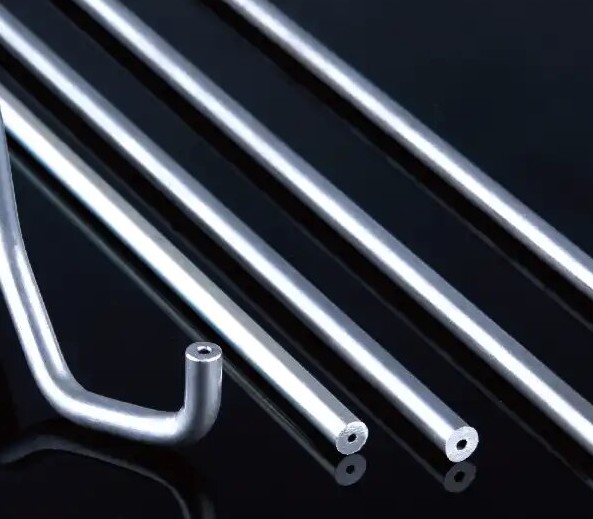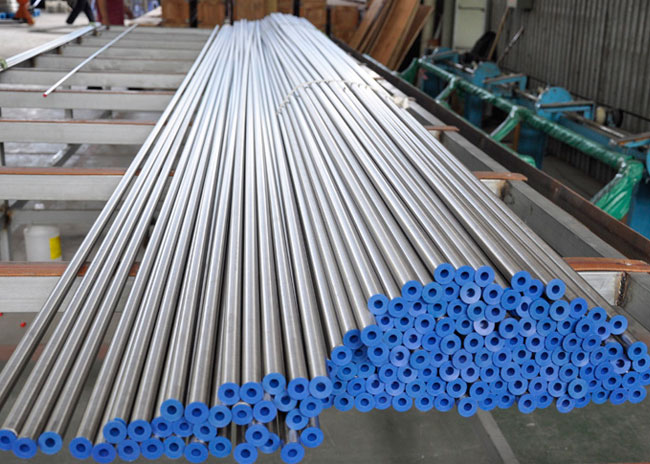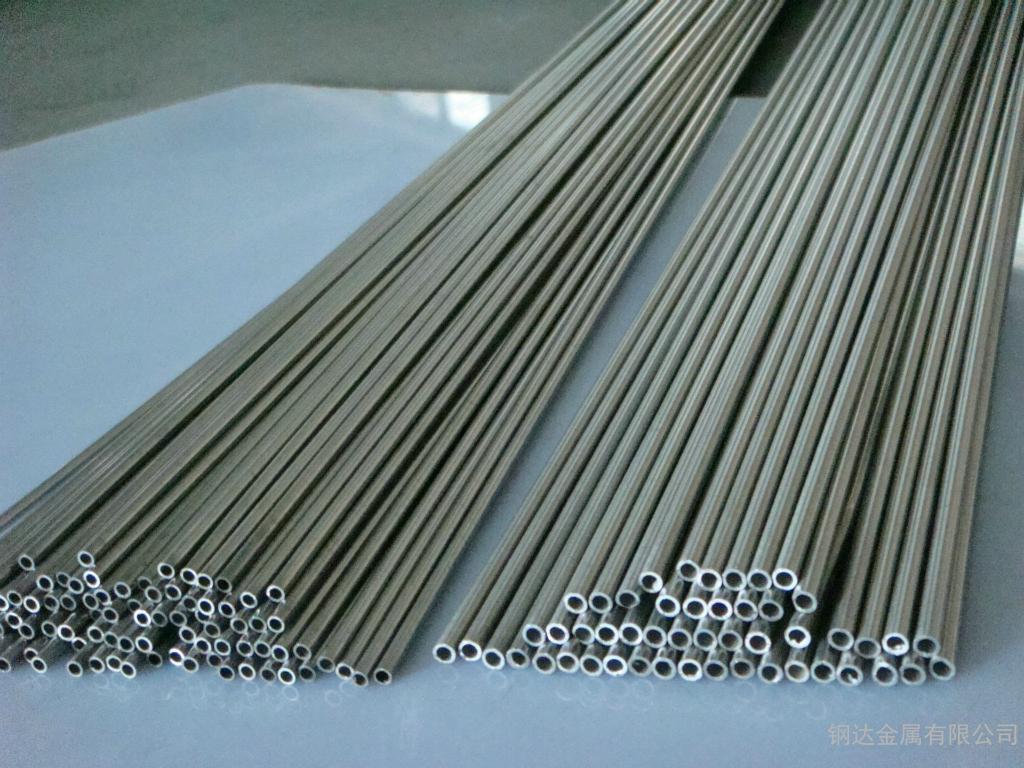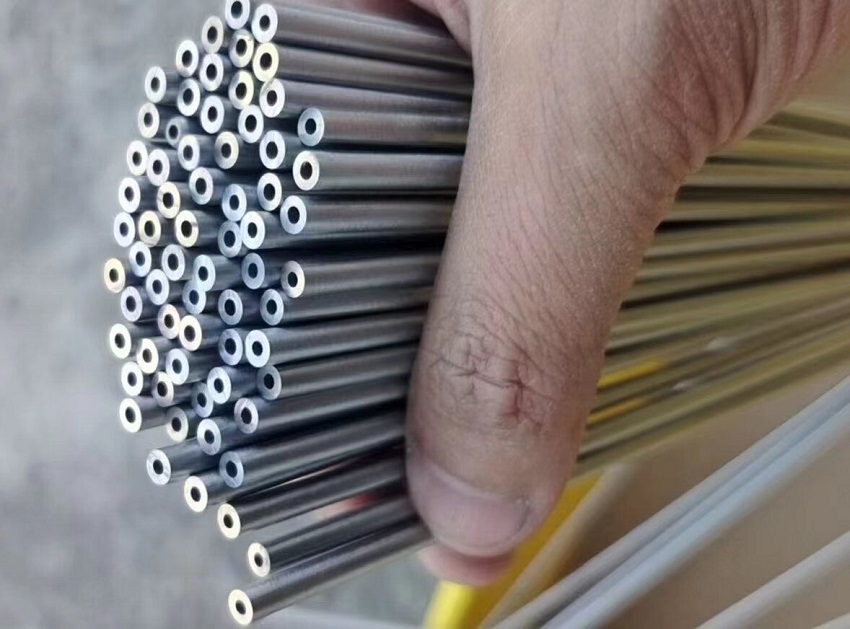NEWS CENTER
High Pressure Fuel Injection Steel Tube
High Pressure Fuel Injection Steel Tube
High-pressure fuel injection steel tubes are crucial components in modern fuel injection systems of internal combustion engines, particularly in diesel engines and some gasoline direct injection systems. These tubes are designed to withstand extremely high pressures generated by the fuel injection process. High-pressure fuel injection steel tubes are components used in fuel injection systems of internal combustion engines, particularly in diesel engines and some gasoline direct injection systems. These tubes play a crucial role in delivering fuel from the injection pump to the fuel injectors at extremely high pressures.
High Pressure Fuel Injection Steel Tube Material:
Carbon steel is a common choice due to its strength, affordability, and suitability for high-pressure applications.
1. SAE/AISI 1010/1015/1020:
- These low carbon steels are commonly used for high-pressure fuel injection tubes due to their good formability, weldability, and machinability.
- They offer adequate strength and toughness for the high-pressure environment within fuel injection systems.
- These grades are often chosen when cost-effectiveness is a primary consideration without sacrificing performance.
2. SAE/AISI 4130:
- This chromium-molybdenum alloy steel is known for its excellent strength-to-weight ratio and high tensile strength.
- It offers good weldability and machinability, making it suitable for manufacturing high-pressure tubes for fuel injection systems.
- Grade 4130 is commonly used in aerospace and automotive applications where high strength and durability are required.
3. SAE/AISI 4140:
- Another chromium-molybdenum alloy steel, grade 4140 offers higher tensile strength and toughness compared to 4130.
- It provides excellent fatigue resistance and impact strength, making it suitable for applications subject to high stresses and pressures.
- Grade 4140 is often used in high-pressure fuel injection systems in heavy-duty vehicles and industrial machinery.
These tubes are typically made from high-quality steel, often alloyed to enhance strength and corrosion resistance. Stainless steel is commonly used due to its excellent resistance to corrosion and high tensile strength.
High Pressure Fuel Injection Steel Tube Precision Manufacturing:
The manufacturing of these tubes requires a high level of precision to ensure uniformity and integrity. This precision is crucial to maintaining the high pressure and preventing fuel leaks. Precision manufacturing of high-pressure fuel injection steel tubes is essential to ensure their performance, durability, and reliability in automotive applications. Heres an overview of the precision manufacturing processes involved:
1. Material Selection:
- High-quality steel, typically carbon steel or stainless steel, is selected based on the specific requirements of the application.
- The chosen material should offer adequate strength, corrosion resistance, and compatibility with the fuel and operating conditions.
2. Tube Formation:
- The manufacturing process begins with forming the selected steel into tubes. This can be achieved through various methods such as hot or cold rolling, extrusion, or drawing.
- The method chosen depends on factors such as the desired dimensions, wall thickness, and mechanical properties of the tubes.
3. Seamless Tube Production:
- For seamless high-pressure fuel injection tubes, the formed steel undergoes a seamless manufacturing process.
- This typically involves piercing a solid steel billet to create a hollow tube, which is then elongated and shaped through processes like pilgering or rotary piercing to achieve the final dimensions.
- Seamless construction ensures uniform strength and eliminates weak points that could lead to failure under high pressure.
4. Precision Machining:
- The formed tubes undergo precision machining processes to achieve tight tolerances and consistent dimensions.
- This includes precision cutting, turning, and grinding to achieve the required diameter, wall thickness, and surface finish.
- CNC (Computer Numerical Control) machining may be employed for high precision and repeatability.
5. Heat Treatment:
- Some high-pressure fuel injection steel tubes may undergo heat treatment processes to improve their mechanical properties.
- Annealing, quenching, and tempering are common heat treatment methods used to enhance strength, toughness, and dimensional stability.
6. Surface Treatment:
- Surface treatments may be applied to enhance corrosion resistance and surface finish.
- Coatings such as electroplating with zinc or nickel, or applying corrosion-resistant coatings like epoxy or polymer-based coatings, can protect the tubes from corrosion and extend their service life.
7. Quality Control:
- Throughout the manufacturing process, rigorous quality control measures are implemented to ensure that the tubes meet the required specifications and standards.
- Non-destructive testing methods such as ultrasonic testing, eddy current testing, and pressure testing may be used to detect defects and ensure the integrity of the tubes.
High Pressure Resistance:
The primary function of these tubes is to withstand the high pressures generated by the fuel injection system. Diesel engines, in particular, operate at much higher pressures compared to gasoline engines.
High Pressure Fuel Injection Steel Tube Corrosion Resistance:
The material used in these tubes is often chosen for its resistance to corrosion. Fuel systems are exposed to various elements, and corrosion resistance is essential for long-term durability.
High Pressure Fuel Injection Steel Tube Bend and Flexibility:
Fuel injection tubes may need to navigate through the engine compartment, and therefore, they should be designed to handle bending and flexing without compromising their structural integrity.
High Pressure Fuel Injection Steel Tube Connector Compatibility:
The tubes are equipped with connectors at both ends to facilitate easy installation and connection to the fuel injection components. Ensuring compatibility between high-pressure fuel injection steel tubes and their connectors is crucial for seamless integration into fuel injection systems.
High Pressure Fuel Injection Steel Tube Heat Resistance:
The tubes must be able to withstand the heat generated in the engine compartment without deformation or loss of structural integrity.
High Pressure Fuel Injection Steel Tube Mainly in Seamless Construction:
Many high-pressure fuel injection steel tubes are manufactured using seamless construction to eliminate the weakness associated with welded joints.
High pressure fuel injection steel tubes are critical components in modern internal combustion engines, particularly in diesel engines, where they deliver fuel at extremely high pressures from the fuel pump to the injectors. These tubes are engineered to withstand the intense pressures and stresses associated with high-speed fuel delivery, ensuring optimal performance and efficiency. Made from high-strength steel, they are designed to be highly durable and resistant to fatigue and corrosion. Their precision manufacturing ensures that they maintain the necessary structural integrity and reliability, minimizing the risk of leaks or failures, which could severely impact engine performance and emissions.

Fuel Injection High Pressure Steel Tubing
请输入搜索关键字
确定






